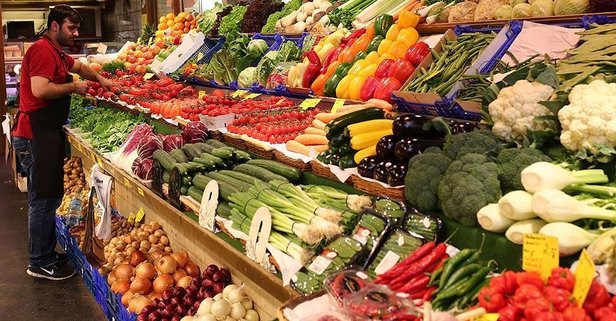3651
0
Outbreak Could Complicate Global Food System
The Coronavirus outbreak, which has a major global impact, could negatively impact the global food system in the coming months.

Yazar: Zack Smith
Yayınlanma: 19 Nisan 2020 23:50
Güncellenme: 18 Şubat 2026 03:06
Outbreak Could Complicate Global Food System
The Coronavirus outbreak, which has a major global impact, could negatively impact the global food system in the coming months. After the outbreak, some countries imposed restrictions on grain exports, some sectors halted production, businesses shuttered and Sunday shelves emptied, raising questions suggesting coronavirus could put global food security and supply chains at risk. Russia, the world's largest grain export country, has taken measures to export grain such as barley and wheat, while Vietnam and Cambodia have halted exports of rice and corn lentils for some time. The United Nations Food and Agriculture Organization said there was enough food for everyone in the world and global grain stocks were at a positive level for 2020. As the number of cases increases, the global food system will also be difficult "As the virus spreads, cases increase and measures tighten, the global food system will be tested and challenged in the coming weeks," he said. The disruptions meant that because the food supply is adequate and the markets are balanced, " but we are facing logistical challenges, he said. Food cannot be moved from point A to point B, and products with high nutritional value, such as fruits and vegetables, are produced less." his warning was recorded. The reasons for possible negativities in the food supply chain are as follows: “We expect disruptions in the food supply chain in April and May. For example, mobility restrictions can prevent farmers and food processors. Fertilizers and veterinary medicines can affect agricultural production. The closure of restaurants and the reduction of market shopping reduces the demand for seafood such as fresh produce and fish and affects the producer and the supplier. The agriculture and aquaculture sectors are particularly affected by the cessation of tourism and the closure of restaurants, cafes and school dining halls. ”İLGİLİ HABERLER





European stocks soared and focus shifted to German retail sales after Powell's speech!

Forex Signal For TRY/USD: Inflation Slowdown in November.

Forex Signal For GBP/USD: Bullish Trend Still Not Breaking While Recovery Continues.

Forex Signal For EUR/USD: Starry US Data Points to Higher Fed Increases.

Forex Signal For BTC/USD: Downside Continues as Bitcoin Recovery Moves Less.
En Popüler Haberler
Yorum Yap
Yorumlar
Henüz yorum yapan yok! İlk yorumu siz yapın...